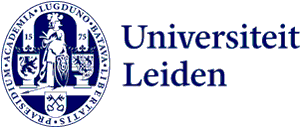
Reflecting together on Gaza conflict: 'Precisely as philosophers, we have something to say about this'
Seventy students, researchers and PhD candidates from the Institute of Philosophy gathered on Friday 23 February 2024. to discuss the responsibilities of citizens, scholars, and intellectual communities to the civilian population in Gaza.
The meeting was organised by members of staff in the philosophy department. University Marie Louise Krogh and visiting lecturer Elettra Repetto comment that they ‘wanted to emphasize that what is happening in Gaza now doesn’t only concern experts and students in Middle Eastern studies, International Relations studies, or political science.’ Their main concern was not whether there is a potential or actual genocide going on in Gaza.’ The situation is grave enough that there are important questions to discuss that pertain to political philosophy: about complicity and responsibility on the part of other state actors in the conflict, in the international community, and for us as citizens, scholars and students, especially if one is committed to ideals of global justice.’
Philosophical topics and theories such as global justice, collective responsibility, just war theories and decolonisation can also be directly related to recent events in Gaza. Krogh, and Repetto therefore wanted to open this discussion to the students and to other collogues. ‘Importantly, such questions need not be addressed completely in the abstract’, they state. ‘Therefore, the meeting started by stating some baseline premises for the discussion, including the recognition that the civilian population in Gaza has been heavily and disproportionally targeted in Israel's military operation, that there is an open case at the ICJ concerning the plausible violation of the genocide convention, and that the humanitarian crisis in Gaza has been worsened since several major state contributors to the UNRWA withdrew their funding, after 13 of its 30.000 workers were suspected of having been involved in the 7. October Hamas attack.’
What’s your position?
The session discussed what responsibility the attendees bore in relation to Gaza. Did their position as philosophers, citizens in the world community, or simply as human beings imply a responsibility in the Gaza conflict?
‘These questions matter for how we then proceed to think about what it means to not just acknowledge a sense of responsibility, but indeed to act on it,’ Krogh and Repetto explain. ‘Part of what we hoped to achieve was to tie together the more abstract question of the grounds of responsibility with a series of practical considerations about what it means to live up to such responsibilities, and how one might go about doing that.’
Initiatives and plans
This resulted in a debate about the series of initiatives already taken and in plans for future initiatives. ‘We talked about several current proposals: from campaigns and protests calling for an immediate ceasefire, to the petition that was recently circulated among students and staff, which called for Leiden University to take heed of the ICJ ruling by suspending ties with Israeli institutions on occupied land and by providing scholarships for Palestinian students and fellowships for faculty members who have lost their universities and livelihoods since the twelve universities in Gaza have been completely or partly destroyed by the bombing. We also discussed broader civil society inititatives aimed at exerting pressure on Israel to comply with international law, such as the boycott, divestment and sanctions (BDS) movement.'
